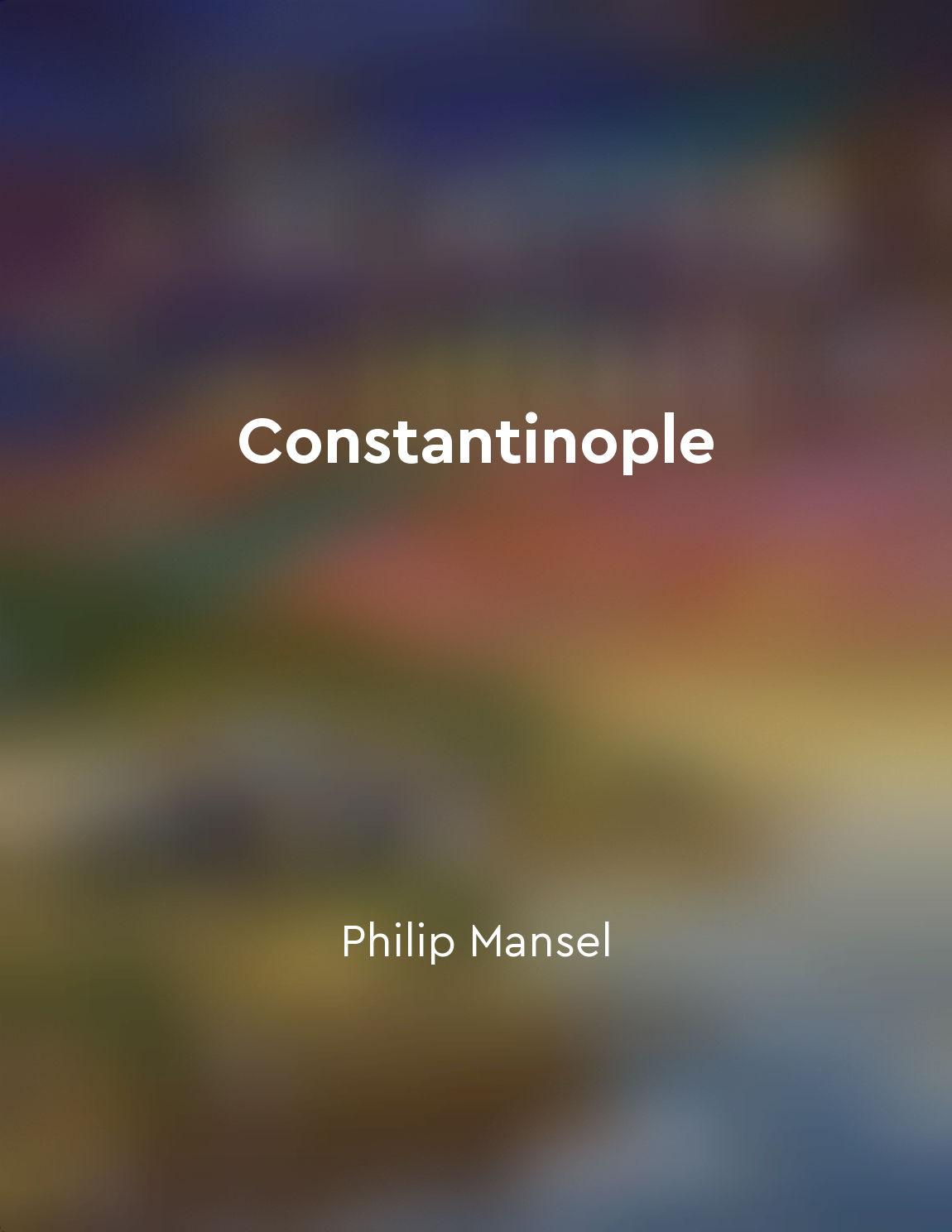Fall of the city from "summary" of Constantinople by Philip Mansel
The fall of Constantinople in 1453 was a cataclysmic event that shook the foundations of the Byzantine Empire to its core. For centuries, the city had stood as a bastion of Christian civilization in the face of numerous threats from the outside world. However, by the mid-15th century, the once-mighty empire was a mere shadow of its former self, weakened by internal strife and external pressures. The Ottoman Turks, under the leadership of Sultan Mehmed II, had long coveted Constantinople for its strategic location and symbolic significance. The city was both a prize to be won and a symbol of the Islamic world's desire to vanquish its Christian rivals. Mehmed knew that capturing Constantinople would not only secure his place in history but also pave the way for further Ottoman expansion into Europe. The siege of Constantinople was a brutal and protracted affair, lasting for over 50 days. The city's defenders, led by Emperor Constantine XI, fought valiantly against overwhelming odds, but ultimately they were no match for the Ottoman forces. The city's walls, once thought to be impenetrable, were breached by the Turks' superior military tactics and firepower. As the Ottoman army poured into the city, a wave of terror swept through the population. The streets ran red with blood as the conquering soldiers pillaged and plundered their way through the once-great metropolis. The Hagia Sophia, the crown jewel of Byzantine architecture, was desecrated and converted into a mosque, symbolizing the triumph of Islam over Christianity. The fall of Constantinople marked the end of an era and the beginning of a new chapter in world history. The Byzantine Empire, which had endured for over a thousand years, was no more. The city that had once been the center of the civilized world was now a mere provincial capital in the growing Ottoman Empire. The fall of Constantinople was a turning point in the history of Europe and the Middle East. It marked the rise of the Ottomans as a major power in the region and the decline of the Byzantine Empire. The consequences of this event would reverberate for centuries to come, shaping the course of world events and laying the foundation for the modern world as we know it.Similar Posts

Cognitive revolution gave humans ability to create complex societies
The Cognitive Revolution was a significant turning point in human history. It marked the moment when our ancestors gained the a...

The Hagia Sophia
The Hagia Sophia is a monument that has defined the skyline of Constantinople for over a millennium. Originally built as a Chri...
Military strength and conquests
The power of the Roman Empire was built upon the strength of its military might and the success of its conquests. The legions o...
The Enlightenment ushered in an era of reason and rational thought
The Enlightenment marked a turning point in human history, as thinkers began to prioritize reason and rational thought over sup...
Rise of the Roman Empire
The Roman Empire, which had already attained a high degree of power and civilization, continued to expand its dominions through...
